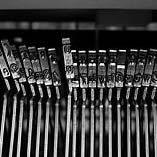A book recently published under the title ‘Prime Minister, you wanted to see me? – The History of Week Ending’ can only be described as a labour of love, detailing as it does every show in its 25-year-plus history. Even more so when you realise that the show did not go out once or twice a year in a series of six, but 40 or so weeks of the year.
For the uninitiated or those under 35 – and if you’re uninitiated at 35 you need to get out more – Week Ending was, from its inception in the 70s to its demise in the late 90s, BBC Radio’s flagship topical comedy show. The title of the book, by the way, is a nod to the manner in which many of the shows writers would start a sketch featuring the then Prime Minister, i.e. – FX. KNOCK ON DOOR. DOOR OPENS. A.N. OTHER CABINET MINISTER.: ‘PRIME MINISTER, YOU WANTED TO SEE ME?’. PRIME MINISTER: ‘AH, A.N.OTHER CABINET MINISTER. COME IN’ – cleverly, but none-too-subtly informing the listening audience as to who was who in the sketch. Radio writing at its finest, I’m sure you’ll agree.
I know this because once upon a time, I was one of those writers. My sole intention? To bring down the Thatcher administration armed only with my satiric wit , Adler manual typewriter and well-used bottle of Tipp-Ex. That she was still in power when I stopped writing for the show might be taken as a failure on my part, but as she is no longer, I prefer to think of it as my ultimate success. I’ll let somebody else take the credit for President Reagan.
The show itself was built up over a period of three days, starting with two writers meeting at lunchtime on a Wednesday – the commissioned writers who would write the bulk of the shows main sketches, followed by an open meeting for any other writers to pitch for smaller stories and quickie ideas which, if they made it on to the show with any regularity, would see you graduate to the main writing team.
Once the meetings were over you were on your own until the next day and the fateful moment you handed in your finely wrought, grafted-over satire to the Producer of the moment and retired to the writers’ room to await pronouncement on your efforts.
Of course, most sketches needed some rewriting, if only to add a different punchline – the most dreaded of critiques, as that most often the hardest part – or simply to remove libellous statements about Jeffrey Archer, which we were fond of making. Once approved, your sketch would be ‘officially’ typed up for the finished script and you were halfway to getting it rehearsed, recorded and ultimately broadcast.
The overnight wait to see if your sketch was still in the script on Friday was a cruel business, no matter how much cheap lager you drank in the BBC bar the previous evening. There was always the possibility it had fallen foul of a producer’s last-minute whim or a dramatic twist in the news story you had covered that had rendered your material defunct – all before the first cast read-through, the recording of more material than required and the producer’s final choice in the edit. Only when the show finally went out late Friday night and you heard your sketch or sketches broadcast could you finally count the money.
As a footnote to the publication of this wonderful book, it is sad to relate that the BBC did not preserve the recordings of the show at this point – a fact that myself and my then-fellow contract writer Simon Bullivant found out the hard way. When asked to put together the best of the show’s sketches about Mrs Thatcher’s long reign for a commemorative cassette tape, we found they simply did not exist and had to go down to the BBC written archive unit in Caversham. There we would painstakingly fast-forward through every Friday’s microfiched text of that entire day’s Radio Four output to the Week Ending transcript, locate the Maggie stuff and have it stickily Gestetnered for us by a willing member of staff before taking it all back to London to be re-recorded by the cast in a massive two-day recording session.
Damn politicians – they always get the last laugh.





